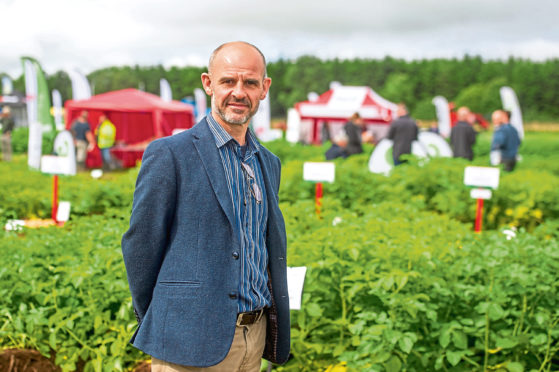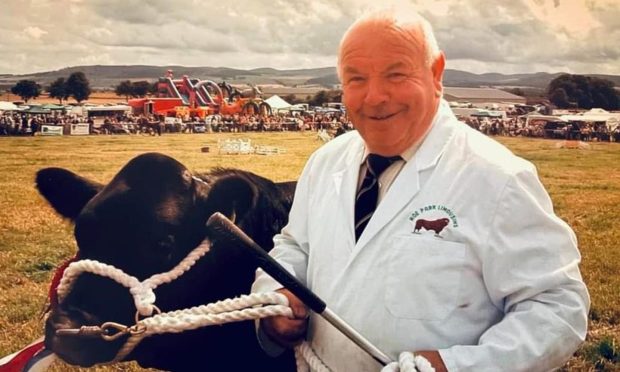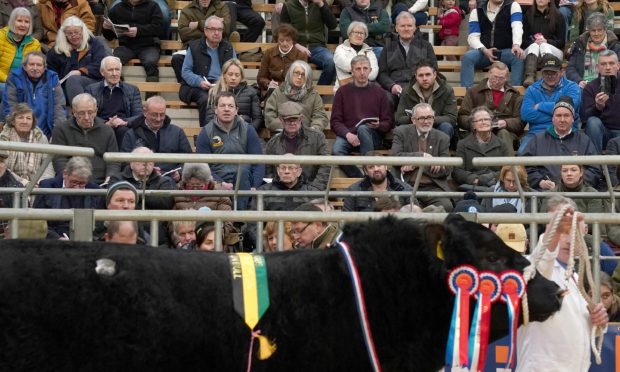Plant scientists have warned that unless the industry unites in its efforts to stop the spread of potato cyst nematode (CPN) there will be no Scottish potato sector left in 25 years’ time.
Growers attending yesterday’s Potatoes in Practice event on Balruddery Farm at Invergowrie were bombarded by appeals to do more to prevent yet more soil becoming infested after it was discovered the amount of land affected by the pallida species is doubling every six or seven years.
Once land is infected it can take 30 years before potatoes can be safely grown again.
Warning there is a perception that short-term profits on rented land might be taking over from long-term management of owned land, Professor Ian Toth, director of Scotland’s Plant Health Centre, said: “If we keep going at this rate, within the next 25-30 years there might be no land left to plant potato seed.
“We need to take urgent action because if we don’t move for the next five years, we will have twice as much pallida as we do now.”
Professor Toth said 33% of all ware land tested now has PCN, and while resistant cultivars are the best way of overcoming the problem, very few varieties are resistant to pallida.
“We are surveying growers to see if there are any impediments to stop them dealing with PCN. Sasa did a recent survey which showed over 40% of growers weren’t sure if the varieties they were using were resistant to PCN – that’s a big problem,” he said.
It was revealed SAC Consulting received funding this week to set up a working group in Angus where PCN has become a major issue.
Dr Andy Evans of Scotland’s Rural College also called on the whole industry to engage to stem the spread of the problem.
“We need to consider all options, whether that is chemical control, mechanical control or crop rotation, so when we lose chemicals we won’t be stuck,” he said.
“We need to look at biosecurity as PCN spreads on machinery, so if someone has a PCN-infested field, there’s machinery going in – not just when they’re growing potatoes, but when they’re growing cereals or irrigating, and they could be trundling PCN all over the place,” he said .
“If growers are using contractors they need to control them. Everyone needs to be up to speed to reduce the spread of this disease.”
AHDB Potatoes director Rob Clayton said a study tour to Germany had discovered growers there were successfully starting to manage the problem.
He said: “They thought the horse had bolted but they’ve turned it around in Germany.”
nnicolson@thecourier.co.uk










